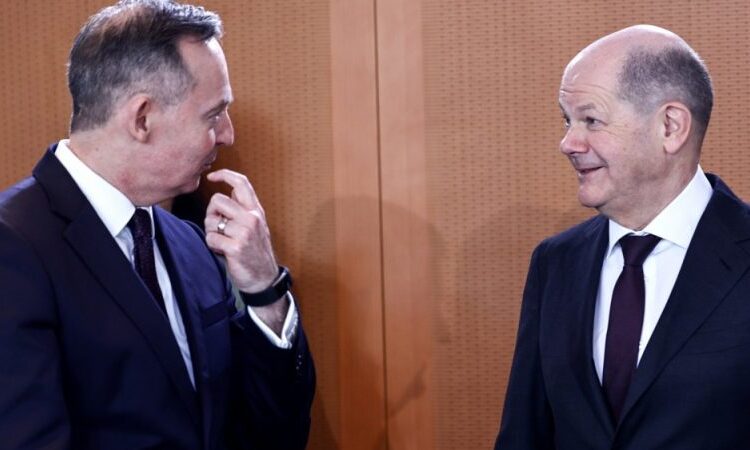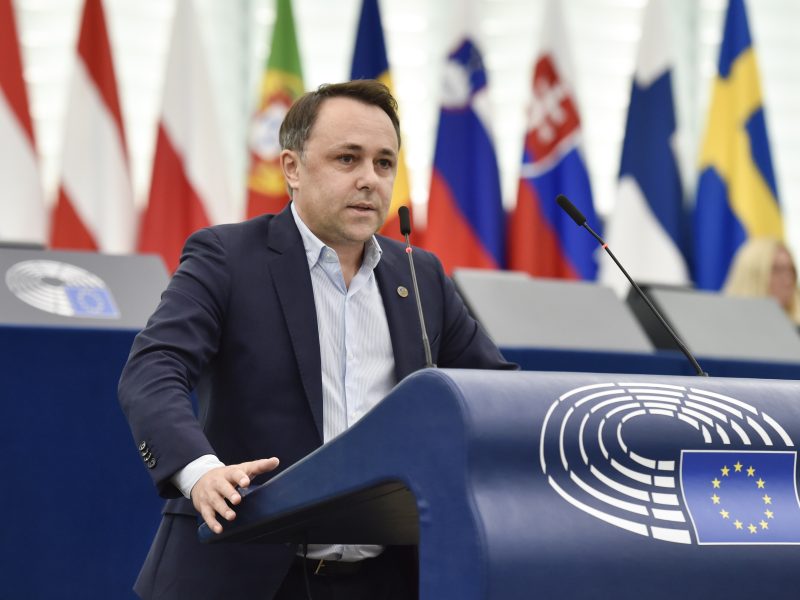
The German government is going on a telecom spending spree with a new telecom law, seemingly against industry stakeholders’ views and its own decision to tighten the purse strings.
After receiving the green light from the European Commission to more than triple its state budget for high-speed network deployment on Tuesday (23 July), the German government proposed a new telecom law on Wednesday, which it dubbed the “Gigabit Offensive.”
The tripling of the state budget for upgrading Germany’s telecom networks, to €38 billion from €12 billion, is particularly noteworthy as the country is going through a sluggish economic recovery after a period of recession, which has led to the government to slash spending.
The bleak economic outlook has led to calls for Germany to revamp its manufacturing-heavy economy base, including from the head of the European Central Bank, Christine Lagarde.
In terms of the fiber network deployment, which the Commission deems key to achieving the transition to a digital economy, Germany ranks near the bottom of all EU countries. The EU has set a goal to connect 100% of buildings via fibre by 2030.
Coverage of fibre-to-premises (FTTP), which means fibre cables are laid up to the premises but not necessarily to the so-called ‘last mile’ (each apartment), was below 30% in 2024, compared to the EU average of 64%, said the Commission’s digital decade reports, published in July.
The Commission extended the timeline for German state aid for the deployment of high-speed networks from the end of 2025 to the end of 2028.
Competition issues
But throwing money at the problem may lead to adverse effects on competition and stakeholders in Germany’s telecom industry are already concerned about the budget increase.
Industry association VATM, which includes most telecom firms except Deutsche Telekom, and BREKO, an association of fibre companies, are worried that it will negatively impact competition, according to German media reports.
They worry that such a vast sum of public money would disrupt their commercial plans, delay network deployment due to longer public procedures, and increase deployment costs.
The German government failed to include in the proposed law provisions that would ensure the transition from copper to fibre optic networks by Deutsche Telekom is done in a competitive manner, warned the managing director of BREKO, Stephan Albers.
The so-called “copper switch off” is the process whereby telecom infrastructure is gradually changed from analogue copper phone lines to high-speed fibre networks. All EU countries are going through it, at varying speeds, but the market dominance of formerly state-owned Deutsche Telekom poses specific issues in Germany.
Users are often disincentivised to switch internet providers when moving from antiquated copper networks, usually owned by incumbent operators, to fibre networks, due to additional costs. Regulatory authorities can make sure that copper deactivation and fibre activation are free of charge to boost competition.
The Commission’s approval of Deutsche Telekom’s practices is one of the reasons for Germany’s lag in fibre deployment, said the European Competitive Telecommunications Association (ECTA) in a document sent to the Commission in June.
The German telecom market “still remains a market where the incumbent’s copper network is the predominant infrastructure,” ECTA wrote.
Under EU law, legacy infrastructure older than 40 years, such as the one owned by Deutsche Telekom, has to be open to competition.
The Commission told the German telecom regulator (BNetzA) on 15 July that Deutsche Telekom’s pricing practices around access to its networks were “negatively impacting” competition, in a document seen by Euractiv.
For its part, Deutsche Telekom aims to deploy its fibre network to over 50% of German households by 2030.
A bill with no teeth
Germany’s new telecom law aims to accelerate the roll-out of high-speed telecom networks by speeding up procedures and cutting red-tape.
The German government hopes that the law will become a cornerstone of Germany’s Gigabit Strategy, which sets two main objectives: connect more than 50% of German households to FTTP by 2025 and reach the EU goal of 100% FTTP connectivity by 2030.
“With [this law], rather small improvements are coming,” said VATM managing director Frederic Ufer.
Ufer welcomed the shortening of approval procedures, reduction of bureaucracy, and shortening of administrative procedures, as well as the “one-stop-shop” concept. These were all provisions discussed by member states in the EU’s Gigabit Infrastructure Act, which aimed to hasten fibre and 5G roll-out throughout the EU.
One of the major provisions of the German law is to define network roll-out as “overriding public interest” on all approval procedures.
But this “overriding public interest” only applies to telecom masts and not to fibre deployments in natural conservation areas.
This is one of the reasons why the German government “fails to address regulation for the transition from copper to fibre optic networks,” BREKO’s Albers said on Wednesday.
[Edited by Zoran Radosavljevic]








